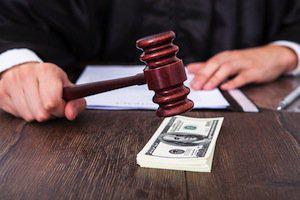 When lawyers discuss civil lawsuits, particularly personal injury lawsuits, they will often talk at length about “damages.” Damages is a legal term which refers to the harm suffered by a plaintiff (“plaintiff” is the designation used to describe someone who is injured in an accident and who wishes to recover damages from another party). If a jury finds that a defendant harmed a plaintiff, but that the defendant caused only $2 in damages, it is not much of a victory for the plaintiff. Consequently, it is important that plaintiffs in lawsuits understand the different types of damages available.
When lawyers discuss civil lawsuits, particularly personal injury lawsuits, they will often talk at length about “damages.” Damages is a legal term which refers to the harm suffered by a plaintiff (“plaintiff” is the designation used to describe someone who is injured in an accident and who wishes to recover damages from another party). If a jury finds that a defendant harmed a plaintiff, but that the defendant caused only $2 in damages, it is not much of a victory for the plaintiff. Consequently, it is important that plaintiffs in lawsuits understand the different types of damages available.
Monetary Harms (also known as “pecuniary damages”)
Monetary harms are damages designed to replace specific economic losses that a plaintiff suffers because of a defendant's negligence. One of the most common types of damages claimed by an injured plaintiff following an accident is the total amount of the plaintiff's accident-related medical bills. Often times, these can fairly straightforward and easy to calculate.
However, the law also recognizes other more attenuated damages. Suppose a plaintiff works a job that pays by the hour and his or her injuries from the accident were severe enough that he or she missed one week of work. The plaintiff's lost wages could also be part of the damages claimed. The same theory applies to a plaintiff who is a salaried employee, or who works on commission. If a plaintiff is forced to use vacation time or sick time, those losses could also be a part of a plaintiff's loss of earning capacity claim.
Additionally, suppose a plaintiff's injuries are so severe that he or she is unable to return to his or her job following an accident. As a result, he or she must take a lower paying job, or worse, he or she may never be able to work again. When this is the case, the defendant may be responsible for the plaintiff's future loss of earning capacity claim as well.
Other Damages
The law also attempts to compensate victims for harms suffered that cannot be easily measured in terms of money. The law attempts to “make people whole, ” which means that the law would ideally like people to be so well compensated for any injuries that they are just as well off as if the injury never happened. This includes having the defendant compensate the plaintiff for his or her pain and suffering. The idea behind pain and suffering damages is that although a plaintiff may be compensated for his or his medical bills, there is still pain and inconvenience associated with the healing process for which a plaintiff should also be compensated.
Beyond pain and suffering damages, the law in some instances allows for “punitive” damages. Unlike other damages, punitive damages are not about compensating the plaintiff. Rather, punitive damages are designed to punish the defendant for particularly reprehensible conduct. Hence, punitive damages act as a sort of fine that a jury can impose on especially bad defendants to punish the defendant and deter others from acting in a similar way in the future.
Consult a Wisconsin Personal Injury Attorney
If you have suffered harm because of another’s careless act and believe you deserve compensation, please contact an Appleton personal injury attorney or Green Bay personal injury attorney today. Our firm has four convenient offices located in Green Bay, Appleton, and Oshkosh. Call us today at 920-739-7366 to learn more about your options.


